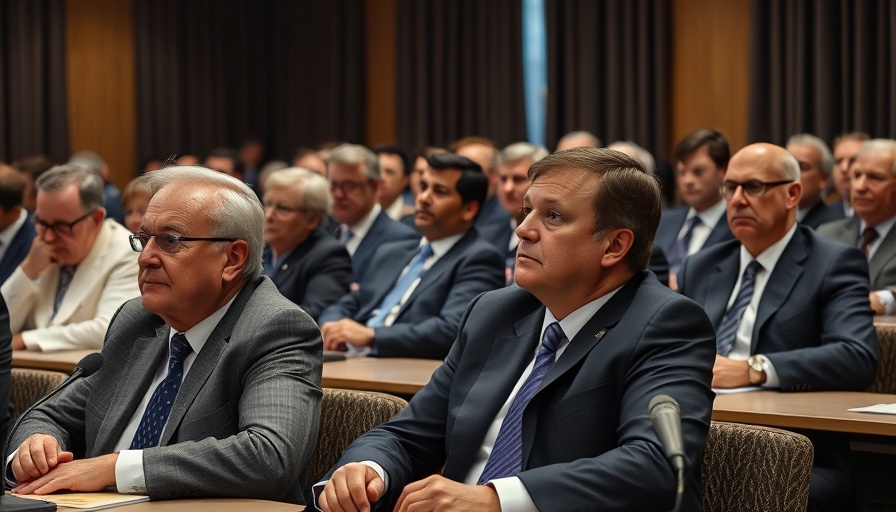
Leadership Shake-up Following Disappointing Elections
In a decisive move, the African National Congress (ANC) has acknowledged the pressing need for reform following dismal election results in two of South Africa's economic powerhouses: KwaZulu-Natal and Gauteng. At the recent ANC National Executive Committee (NEC) meeting, President Cyril Ramaphosa emphasized that the situation cannot return to "business as usual" amidst recognition of the party's significant electoral losses last May.
Accountability at Forefront of ANC's New Strategy
The ANC has reiterated its commitment to accountability as it confronts the aftermath of the 2024 polls. Both KwaZulu-Natal and Gauteng are not just critical to the party's future but also central to the country's economy, representing some of the biggest contributors to national GDP. As ANC spokesperson Mahlengi Bhengu-Motsiri stated, these provinces are essential not only for their economic contributions but also for their substantial voter populations. The call for leadership change indicates a recognition that electoral strategies must evolve to meet constituents' expectations.
Potential Disbandment and Reconfiguration of Provincial Structures
As discussions continue, the possibility of disbanding the existing provincial structures has surfaced. This consideration arises from a lack of consistent evidence suggesting that either disbandment or reinforcement of these structures has positively influenced electoral outcomes in the past. The ANC appears to tread carefully, balancing the urgency of change with the realities of internal party dynamics. The ongoing conversations reflect broader themes of governance and efficiency—key issues concerning South Africans who demand more from their leaders.
Historical Context: ANC's Political Landscape
This restructuring effort is not merely a reaction to recent electoral setbacks but is steeped in a broader historical context. The ANC, once the overwhelming force in South African politics, has seen its influence wane, particularly in urban areas where economic dissatisfaction has fueled votes against its candidates. Contextualizing these changes requires looking back at shifts in party strategy over the past decades, particularly as the electorate evolves and expectations grow.
Emotional Impacts: The Voter's Perspective
For the average voter, the ANC's leadership overhaul elicits a mix of hope and skepticism. Many in communities depend on effective governance for their daily lives, and repeated failures at the polls indicate a disconnect between political promises and the lived experiences of South Africans. Voter frustration could foster a sense of betrayal, especially in regions where economic hardships are escalating. As the ANC navigates this complex landscape, the forthcoming changes will be scrutinized closely by voters seeking tangible improvements in governance.
Looking Ahead: The ANC's Path Forward
As the ANC prepares to make significant alterations to its leadership and strategy, the outcomes of this process will be pivotal in shaping the party's future. It is not just about rebuilding public confidence; it is about revamping the ANC’s approach to governance, community engagement, and service delivery. How successfully the party can implement these changes will largely determine its political relevance in the coming years.
 Add Row
Add Row  Add
Add 




Write A Comment